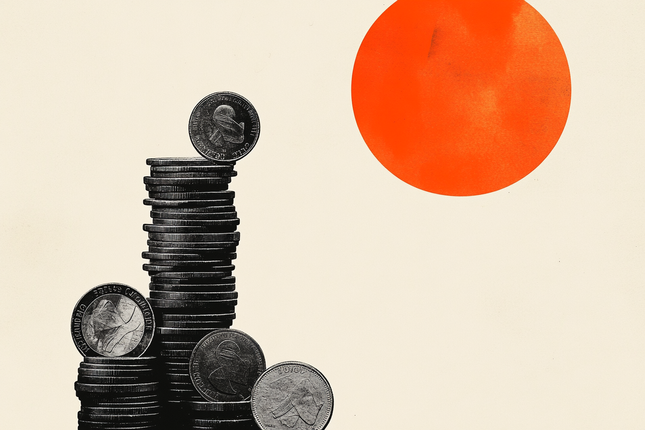In focus today
In the euro area, we monitor the October consumer confidence indicator. Confidence has remained low over the past half year likely due to geopolitical tensions and rising food prices. The weak confidence is hurting private consumption which remains low despite improving real incomes. Normalising consumer confidence will thus be key for the growth outlook in order for households to lower their elevated savings rate and drive consumption.
In Norway, wage growth appears to have slowed in Q3 from elevated levels close to 6% in Q2. Today, the September figures will confirm whether this trend continued or not. High wage growth remains a major concern for Norges Bank due to the risk of persistently high inflation, so further slowdown is a necessary condition for Norges Bank to deliver rate cuts next year. Also keep an eye on the LFS figures to see if the rise in unemployment continues.
Economic and market news
What happened overnight
In the Ukraine war, the US hit Russia with sanctions on Rosneft and Lukoil, two of Russia’s largest oil companies. The sanctions come just after the summit between US President Trump and Russian President Putin was cancelled yesterday. The tariffs were announced as an effort to damage Moscow’s ability to fund its war machine and also mark the first cost imposed by the Trump administration on Russia over the war. Oil prices rose immediately following the announcement. This move is adding fuel to the fire and comes just after the EU approving the 19th package of sanctions, which include a ban on Russian liquefied natural gas imports.
What happened yesterday
In the UK, September inflation surprised significantly to the downside. Headline inflation came in at 3.8% y/y (cons: 4.0%, prior: 3.8%), core at 3.5% (cons: 3.7%, prior: 3.6%) and importantly, services at 4.7% (cons: 4.9%, prior: 4.7%). The momentum slowed across categories, and the print was also below the BoE’s expectations from the latest MPR in August, where it had headline at 4.0%. Following last week’s downside surprise to wage growth and the lower-than-expected inflation, markets have increased their expectations for rate cuts from the BoE, pricing 9bp for the November meeting and 60bp for the coming 12 months.
In the EU, trade Chief Maros Sefcovic announced an urgent meeting with the Chinese Commerce Minister to address the rare earth export controls as well as the recent fallout over the chipmaker Nexperia, which was owned by a Chinese company until the Dutch government took control last week.
In China, more than 170 foreign companies gathered for a meeting with Vice Commerce Minister Ling Ji, where he aimed to clarify that the country’s new rare earth export controls are not intended to obstruct regular trade. During the meeting Ling Ji said: “China will continue to approve legitimate transactions according to law and work to maintain the stability of global supply chains”.
Equities: Equities traded lower yesterday, though without any clear macro or geopolitical trigger to justify the move. In the absence of major data releases, one might have looked to earnings for direction, yet it is hard to see why results should have prompted such a negative reaction. The move instead looked more like a defensive rotation following the strong run we have seen over recent months in cyclicals. The energy sector outperformed after the US announced new Russian sanctions. In the US yesterday, Dow -0.7%, S&P 500 -0.5%, Nasdaq -0.9% and Russell 2000 -1.5%. In Asia overnight, markets followed Wall Street lower, with most indices in the red, particularly the more tech-heavy ones. Futures in Europe and the US are largely unchanged this morning.
FI and FX: Risk sentiment turned sour after reports that the Trump administration is considering new restrictions on software exports to China, adding to trade uncertainty, while corporate earnings continued to underwhelm. US Treasury yields were little changed, slipping 1-2bp across the curve. In the euro area, price action was muted, with front-end Bund yields unchanged, while the long end edged 1-2bp higher in a mild bear-steepening move. EUR/USD is consolidating around 1.16 in a quiet session; with the broad USD little changed amid a lack of fresh catalysts. GBP faced significant headwinds during yesterday’s session as September inflation surprised to the downside. USD/JPY has generally extended its upward trend over the past month, with JPY broadly underperforming across G10. Both EUR/SEK and EUR/NOK extended their declines again yesterday, especially NOK FX had a strong day yesterday reflecting the rise in global energy prices incl. oil.




















